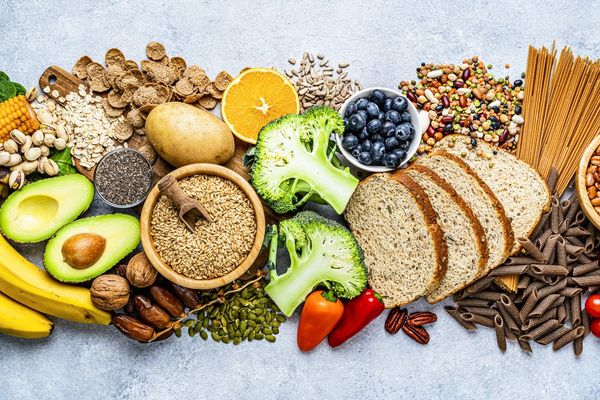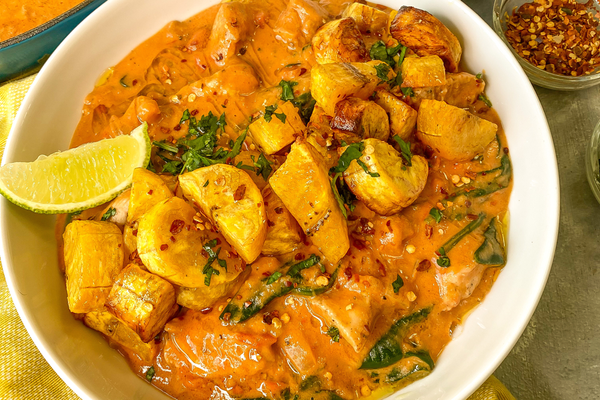Is it any coincidence that the Italian greeting “Ciao!” is pronounced like our English word for "eat up": chow?
Perhaps I'm reaching here.
But I just returned last week from a wonderful trip to Italy, soaking up all the local culture—from visiting churches that still stand beyond any imaginable expectations to experiencing the popular drink, the Spritz (a yummy drink made from Prosecco, Aperol and club soda; see the recipe here). I'm still basking in the experience, feeling a whole lot more enriched by the grandeur and beauty of the country and the relaxed pace of the Italians—with the taste of the incredibly fresh and wholesome food lingering on my palate.
Gotta love that healthy Mediterranean style of eating: a healthy meal enjoyed surrounded by family and friends—incomparable.
I've always been a devotee of healthy eating. Vegetables? I love them all (with the possible exception of okra. Anyone out there to convince me it's good?). I never met a watermelon, nectarine or piece of fruit I didn't like. Fish, with its tender, succulent flesh and earthy flavor, pleases my palate more than does beef. And grains (farro's my fave) and beans (yum, chickpeas) of all kinds win my affection. A handful of nuts here, a glass of red wine there, and I'm happy.
Turns out it's no accident that the Mediterranean diet has been lauded for being a genuinely healthy way of eating. It incorporates all the basics of healthy eating: fruits, vegetables, fish and whole grains. Add some olive oil and you're onto something.
Not only has research shown the traditional Mediterranean diet reduces the risk of heart disease, but it's also proven to reduce the incidence of cancer and Parkinson's and Alzheimer's diseases.
Here's how it works. Imagine a pyramid. At the top (the smallest portion) are meats and sweets. Below that, poultry, eggs, cheese and yogurt, which should be eaten in moderate portions, daily to weekly. Fish and seafood enjoy a wider berth; eat them often (at least two times a week). And then the pyramid opens up to bring in fruits, veggies, grains (mostly whole), olive oil, beans, nuts, legumes, seeds, herbs and spices. Every meal you eat should be based on these foods.
What changes can you make in your diet to move closer to the Mediterranean style of eating?
- Eat primarily plant-based foods (like fruits and vegetables), whole grains, legumes and nuts.
- Replace butter with healthy fats, like olive oil (but remember: it may be healthy, but watch your quantities: 1 tablespoon has 119 calories).
- Replace salt with herbs and spices to flavor foods.
- Limit red meat consumption to a few times a month. Make sure it's lean and keep the portions small. Avoid high-fat processed meats like bacon and sausage.
- Eat fish and poultry at least twice each week. Fresh or water-packed tuna, salmon, mackerel, trout and herring are healthy options.
- Make your grains whole grains. They contain all the essential parts and nutrients of the entire grain seed.
- Drink red wine in moderation; no more than 5 ounces daily for women of all ages. (Teetotalers: this is totally optional! Grape juice and fresh grapes provide the same protective antioxidants found in wine.)
- Eat bread either plain or dipped in olive oil—not smeared with butter or margarine.
- Enjoy nuts but watch the quantity—though most of the fat in them is healthy, they do contain a lot of calories. Eat no more than a handful a day. Stay away from heavily salted, candied or honey-roasted varieties.
- Include veggies and fruits in every meal. They also make easy and nutritious snacks between meals.
- Make your dairy low fat. Switch to skim or fat-free milk and yogurt and low-fat cheeses.
Ciao (which also means bye) and mangia, mangia! (Eat, eat!)
More on the topic:
5 Reasons to Love Peanuts
5 Steps to a Heart-Healthy Diet
A NEW Health Benefit to Drinking Wine







